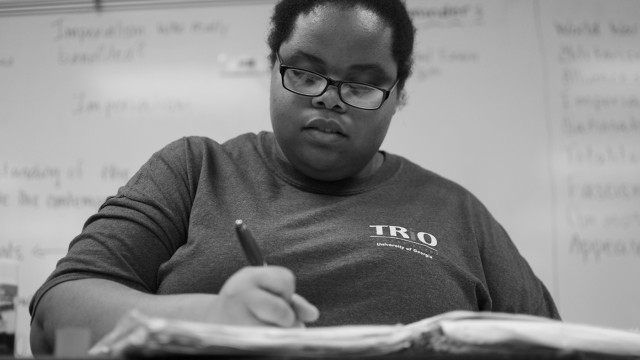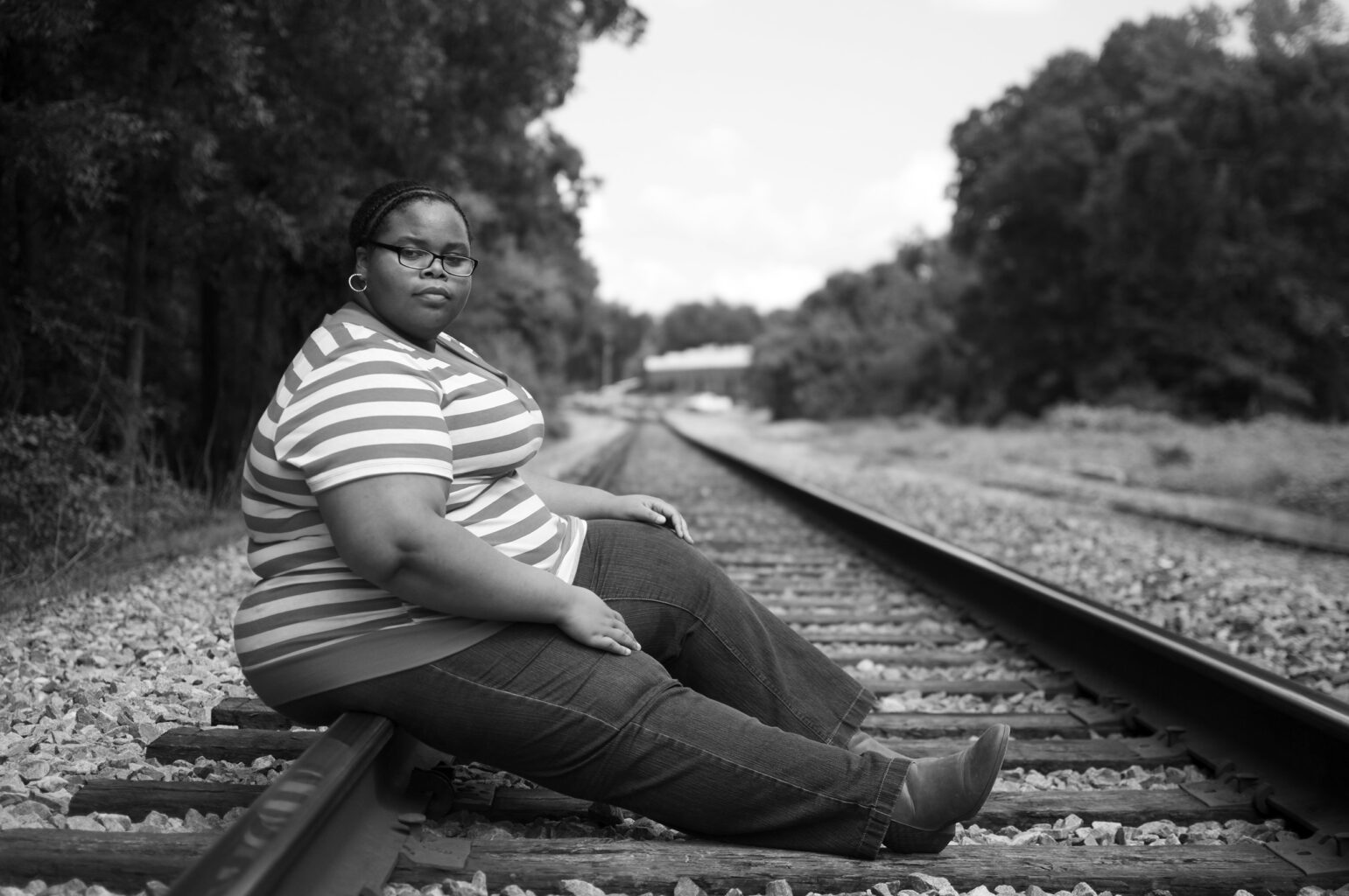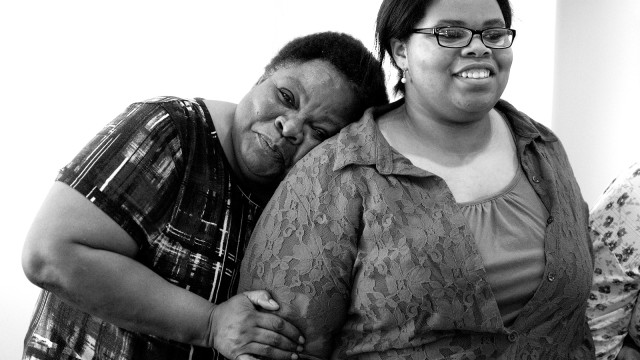Junior Mia Wilhite has been homeless since 2007, shortly after her grandmother passed away. She used to try to get picked up from a collection of houses down the street to hide the fact that she was staying at the shelter.”It’s difficult because people are going to look at you with pity.” Photo by Sophie Fernandes.
By SOPHIE FERNANDES – Print Photography Editor
Junior Mia Wilhite’s experience with homelessness has led her to make the most of every situation through unstable times.
“Suddenly. Like most things in my life, that’s how consciousness comes to me. There’s a blinding light in my face. My mother’s calling my name. Groaning and mumbling I tell her I’m up, wanting nothing more than for everything to be dark again. It’s funny, when I was little I hated the dark, too many shadows, too many places for people to hide. Now I prefer the night, the quiet, the escape. There are times when the day has been too long, the people too loud, the world so infuriating that all I can think about is getting back to the darkness of our small room that we share with one other woman. However, it’s currently been five minutes since I stirred and my mother is having none of that. Reluctantly I pull myself to the top of my bed and stand on the windowsill, walking sideways to the three-step ladder my mom has placed at the edge, and climb down.”
–Mia Wilhite
The homeless shelter where junior Mia Wilhite stays requires residents to be out by 8:00 a.m. So every morning, she leaves to catch the city bus to get to school. After school, Mia either goes to the public library, jewelry making class or Upward Bound, a program providing opportunities for students to succeed in college preparation and pursuits in higher education.
When her after school activities end, Mia takes the bus back to where she is currently living, whether that be sleeping on the floor at a family friend’s house or the Salvation Army.
“In Athens, there is a housing authority, and they get you into housing for really cheap depending on if your parents have a job and are trying to take steps to get you out of your situation,” Mia said. “We were third (on the list) and they already called us so we should be getting a place pretty soon.”
How Mia became homeless is a question she runs through her head daily. She remembers the days when she lived in Rolling Ridge, a low income housing community. She remembers her mother’s exhausted face after a long day of work at the poultry plant, coming home as a single mother to her two young daughters. She remembers her mother getting fired, and her mother’s illness that soon followed.

Mia completes her work in her Advanced World History class during the 2014-2015 school year. She is afraid that she will scare her new friends off if she mentions to them that she is homeless. “When I get a friend and we start talking about stuff like that I feel like what I have to say makes it awkward,” Mia said. Photo by Sophie Fernandes.
In 2007, Mia’s grandma died. This was the impetus for Mia’s mother’s depression, leading to multiple health problems, preventing her from working. Soon thereafter, Mia found herself and her family being evicted from their home, nowhere left to turn but the shelter.
At the time the Willhite’s had no safety net of extended family to help them. Even at a young age, Mia could see the effects this had on her mother.
“I know that that hit my mother really hard. She always wanted me to have a good life and to keep me safe, and she felt that she had failed me. My mother is real big on pride, she will do whatever she can and she hated asking people for help,” Mia said.
One such person who Mia can count on at Clarke Central High School, however, is her counselor Sam Hicks, who checks in with her often to make sure her life and emotions are intact.
“Any major life event is going to have some sort of mental effect and a lot of it depends on the resilience of the person involved. With Mia’s case, she has stayed really strong through some pretty tough and trying things,” Hicks said
Through Mia’s experiences, she has learned a lot about life and how to handle disappointing periods of time.
“You don’t realize how important the people you have in your life are until you really go through a big struggleand you realize that they are all you have,” Mia said.
Mia embraces her mother on April 3,2015. Mia empathizes the importance of not taking you family for granted. “Be grateful for what you have,” Mia said. Photo by Sophie Fernandes.
“When I go to school and no one is saying anything or reacting, it feels like no one cares, and that hurts. Nobody really understands.“
— Mia Wilhite, junior

